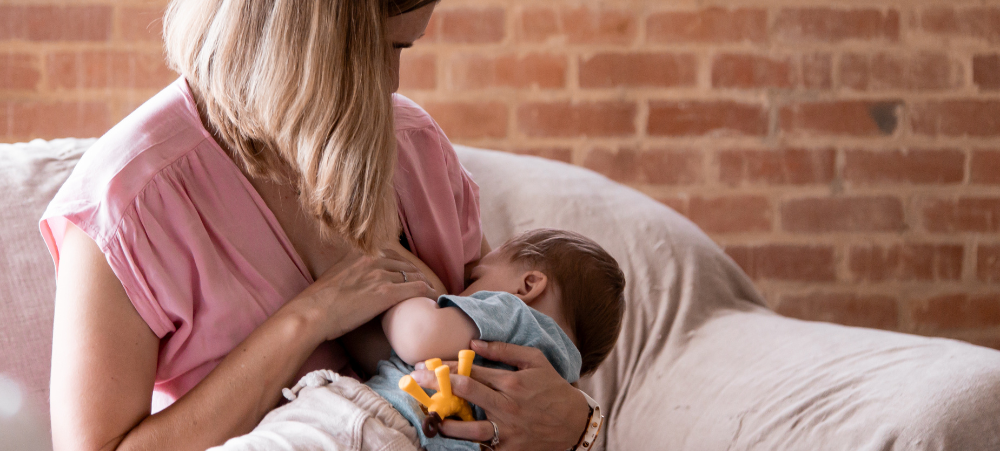The breastmilk bank is probably the most altruistic banking system in the world. Healthy, lactating moms express and donate their excess breastmilk. The milk is tested and pasteurised, and then distributed to neo-natal intensive care units around the country, where it is used to feed the most vulnerable babies.
Every year, donated breastmilk saves the lives of thousands of vulnerable babies in South Africa. Eight out of one hundred babies in the country are born prematurely and, every year, approximately 11 000 premature babies die from preventable infections and complications.
“All babies have immature immune systems,” says Abby Courtenay, a Registered Dietitian and spokesperson for ADSA (The Association for Dietetics in South Africa), “Breastfeeding plays a vital role in transferring not just nutrients but antibodies and other immune-boosting properties to an infant to strengthen the immune system and protect them against infections. This is why breastmilk is the perfect first food, and why the World Health Organisation recommends exclusive breastfeeding for the first six months of life.”
Many mothers giving birth to premature babies in neo-natal intensive care units don’t produce milk immediately, or enough of it. Some mothers experience health complications and cannot breastfeed. If their babies can be fed donated breastmilk instead of formula, it dramatically increases the baby’s chance of survival and offers greater protection against life-threatening infections such as the intestinal infection – necrotising enterocolitis. Donated breastmilk also helps premmies to gain weight and grow faster. This is why donated breastmilk is the next best option when the mother’s own milk is not available.
Breastmilk banking was pioneered in South Africa sixteen years ago by the South African Breastmilk Reserve (SABR) and, today, they have a network of 27 banking facilities across the country. The breastmilk movement in South Africa has since grown to include several other initiatives such as ithemba Lethu milk bank and children’s home in Durban, the KZN Breastmilk Bank Initiative and Milk Matters in the Western Cape.
Every year, more than a thousand South African moms help save lives by donating their milk. “What we would like to see is breastmilk banking being used far more frequently,” says Executive Director and SABR founder, Stasha Jordan. “Expressing breastmilk has become the norm for many new moms who have to return to work while still breastfeeding. Some women have an abundant supply of breastmilk and can easily express more than their baby needs. That surplus can literally save the life of another child. Our donor moms are real heroes helping the most vulnerable in our society to survive.”
SABR and ADSA have partnered to raise awareness of breastmilk banking, which is supported worldwide by both the World Health Organisation and UNICEF.
Who can bank their breastmilk?
A healthy, lactating mom with an excess of breastmilk can make donations. It’s important that you have not received a blood donation in the past year; that you are a non-smoker; that you do not consume alcohol regularly and that you are not on any medication. Donor mothers do need to undergo blood tests to be screened for HIV and hepatitis B.
How does banking my breastmilk work?
- Donor moms complete an online screening questionnaire
- SABR contacts you telephonically to refer you to your nearest sign-up facility.
- Arrangements will be made for the necessary blood tests.
- You will receive all the information you need for the safe storage of your expressed milk, which will be collected from you.
- Your breastmilk will be screened, pasteurised and distributed to help save the lives of premature babies in neo-natal intensive care units.
Every drop counts and small donations can also be used, so don’t be put off from donating if you don’t have a particularly excessive supply. To find out more visit https://www.sabr.org.za
We understand that there are many aspects that encompass a Mother, Father or Child and strive toward providing resources and services that accommodates this.
Our content is aimed to inform and educate families on issues starting from pregnancy through to the challenges of the teen-age years.
- Tiny Toons Looniversity Returns: Meet the Voice Behind Plucky and Hamton! - December 12, 2025
- From Pain to Possibility: Panado®’s New Marketing Campaign, Highlights The Joy Of Pain Relief - December 10, 2025
- Feeding Unicorns by Jeni-Anne Campbell: A bold new book for business leaders who care - December 9, 2025





